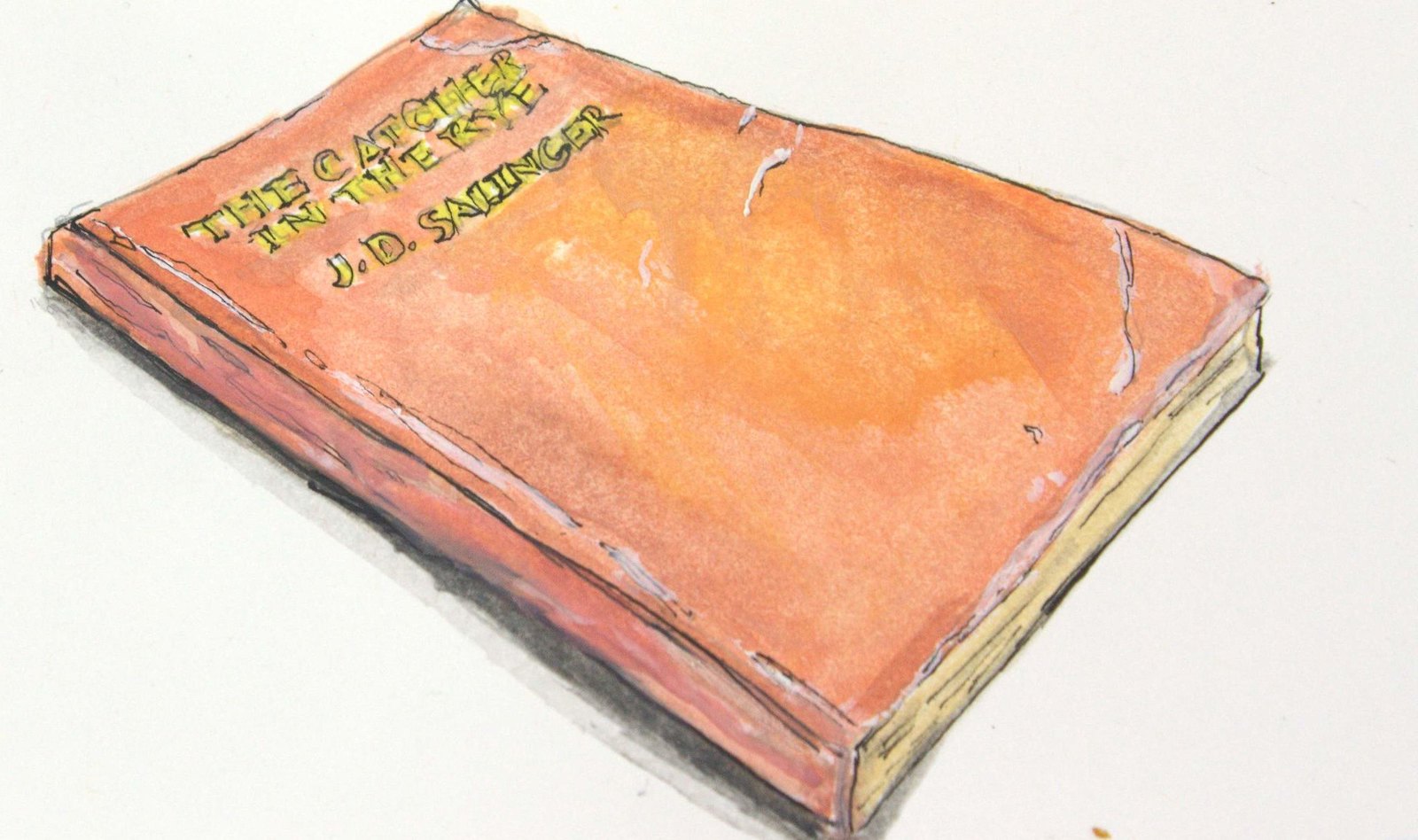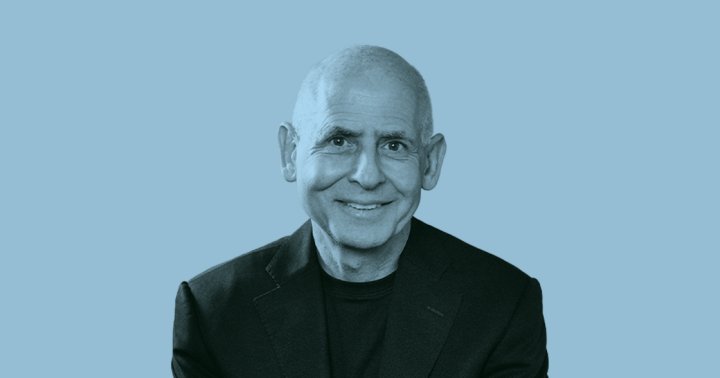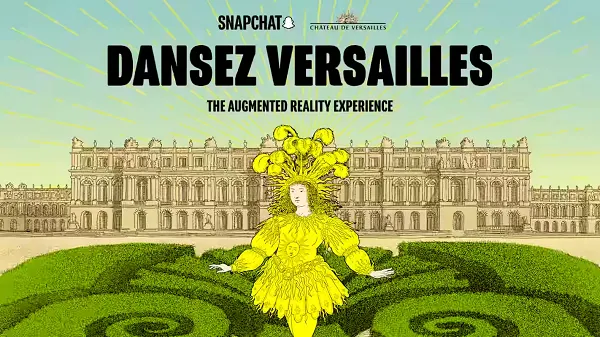Dharma Lessons from The Catcher in the Rye’s Holden Caulfield
Adapted from The Dharma Bum’s Guide to Western Literature The post Dharma Lessons from<i> The Catcher in the Rye’s</i> Holden Caulfield appeared first on Tricycle: The Buddhist Review.

 Art by Rakka | https://tricy.cl/3blkO3x
Art by Rakka | https://tricy.cl/3blkO3xCoffee was unknown in Europe until about the year 1600, when the first beans were imported from North Africa to Venice. Before that, throughout the Middle Ages and into the Renaissance, we can imagine nobles and peasants alike, stumbling about listlessly, peering around corners and behind bushes, muttering, “There must be something else…but I don’t know what it is.”
That’s Holden Caulfield’s situation. The anxious, depressed sixteen-year-old narrator-hero of J. D. Salinger’s The Catcher in the Rye is the embodiment of what one of my teachers used to call “the restlessness of the seeker”: the roiling unease of one who finds life profoundly unsatisfactory but doesn’t know what’s missing. He can only vaguely sense that what’s presented as the Good Life, despite its comforts and rewards, is somehow shallow and inauthentic—“phony,” to use Holden’s word—relative to some as-yet-undefined higher truth, some deeper delight.
The book’s premise is simple. Bright, underachieving Holden flunks out of his Pennsylvania boarding school—not the first school he has flunked out of. He takes the train north to New York and hangs around the city for three days before going home to face his parents. Salinger casts a lonely pall over the journey by having Holden set forth in the dead of a December night.
When I was all set to go, when I had my bags and all, I stood for a while next to the stairs and took a last look down the goddam corridor. I was sort of crying. I don’t know why. I put my red hunting hat on, and turned the peak around to the back, the way I liked it, and then I yelled at the top of my goddam voice, “Sleep tight, ya morons!”
In its backhanded way, this gesture makes Holden’s mission clear. As Saint Paul writes in Thessalonians, “Let us not be like others, who are asleep, but let us be awake and sober.” Holden wouldn’t know to put it this way, but he’s on the trail of awakening. His hunting hat signifies his commitment to the search, and wearing it backward signifies his willingness to go against the grain, to separate himself from the others, the sleepers.
But when he yells, “Sleep tight, ya morons!,” Holden crosses the line between separation and contempt—the kind of wiseass contempt that teenagers are famous for. On the spiritual path, that’s a rookie mistake. The stubbornly immature keep doubling down, condemning the stupid world for failing to appreciate their suffering and their genius, for not showering them with attractive girlfriends or boyfriends who find their problems fascinating, for telling them to go clean their room. If they read The Catcher in the Rye, they mistake it for an invitation to indulge in Holden’s worst tendencies, to persist in their unwinnable war with the world.
***
But Salinger has other plans for his hero. Having set forth from the land of the sleeping, Holden must now cross the no-man’s-land of seeking. This is challenging territory, where we’ve lost the security of our old quasi-blissful ignorance and have not yet reached the real bliss of awakening. (As they say in India, we’ve left the hut but have not yet reached the palace.) Salinger depicts this psychological landscape as a succession of bleak train stations, seedy hotels, and lounges with bad dance bands. At its lowest depths, it’s a landscape of despair.
It was lousy in the park. It wasn’t too cold, but the sun still wasn’t out, and there didn’t look like there was anything in the park except dog crap and globs of spit and cigar butts from old men, and the benches all looked like they’d be wet if you sat down on them. It made you depressed, and every once in a while, for no reason, you got goose flesh while you walked. It didn’t seem at all like Christmas was coming soon. It didn’t seem like anything was coming.
Immature seekers operate only on the principle that the kingdom of heaven is inside us, per the Gospel of Luke. In pursuit of inner nirvana, they withdraw from the allegedly crappy outer world, with its cigar butts and globs of spit. But mature seekers know, per the Gospel of Thomas, that the kingdom is both inside us and outside us, that the grace of nirvana embraces everything we thought was the enemy of grace. That’s a more advanced vision. It takes longer to see, but it’s crucial. Otherwise, start looking for a cave.
***
Throughout the book, Holden has been pondering the ducks in Central Park, and what happens to them in winter when their lagoon freezes over.
I wondered if some guy came in a truck and took them away to a zoo or something. Or if they just flew away.
He asks occasional strangers about the fate of the ducks, but none are helpful. The question becomes a kind of koan, a puzzle that Holden must solve to solve the problem of his own life. The question inside the question is, What is a sensitive seeker like Holden to do in a cold, bleak world? Fly away, escape? He does fantasize about hitchhiking out west and working anonymously at some rural gas station, pretending to be “one of those deaf-mutes.” He knows that’s “crazy,” but what’s the alternative? Wait to be carted away to some zoo-like institution? In fact, by the story’s end, we realize that he’s been narrating it from a sanitarium, where he’s recovering from the breakdown that the whole book has been building to.
At one point, though, Holden gets into a vomity-smelling cab and asks Horwitz, the hypertensive driver, about the ducks. At first he responds, “How the hell should I know?… How the hell should I know a stupid thing like that?” But then he changes the subject to fish, as if Holden has been asking the wrong question all along.
The fish don’t go no place. They stay right where they are, the fish. Right in the goddam lake….They get frozen right in one position for the whole winter….Their bodies take in nutrition and all, right through the goddam seaweed and crap that’s in the ice. They got their pores open the whole time. That’s their nature, for Chrissake. See what I mean?
Holden doesn’t see what he means, at least not right away. Horwitz means, or rather, Salinger, speaking through Horwitz, means: No, don’t try to flee from the world (don’t duck out of your problems), and no, don’t wait to be rescued. Take the third way, the Dharma way. Stay right where you are.
Horwitz’s parable of frozen fish taking in nutrition through their pores may not be scientifically precise—just for starters, I’m pretty sure there’s no seaweed in the Central Park lagoon—but it’s a highly precise meditation instruction. Don’t try to split your experience between “good” (the smell of the wafting incense) and “bad” (the sound of the barking dog). Without judging or filtering, without favoring or resisting, simply rest in the midst of it all. Open your pores to it all. In fact, I’ve sat with Buddhist lamas who use the phrase “Open all your pores” as part of their guidance. They encourage their students to meditate with eyes wide open, to more rapidly erase the imaginary line between “meditation” and “life,” between the kingdom “inside” and the kingdom “outside.”
Then whatever shows up to the five senses is fine. Whatever thoughts or feelings show up, fine. By being innocently present to whatever presents itself, you discover that it’s all a present, all nutritious and delicious, the kingdom of heaven spread upon the earth. In the Tibetan tradition, this approach is personified by Garuda the Space Eagle, whose name means “devourer.” He’s always shown triumphantly feasting on venomous snakes—representing the “bad” experiences we usually try to avoid—and metabolizing them into enlightenment. The venom makes his feathers shine.
Does Holden get it? Does he reach the end of the spiritual path by the end of the book? No, but he reaches the end of the beginning. After twenty-five chapters of gloom, there’s finally a moment of cathartic ecstasy, while he sits on a bench in Central Park watching his younger sister Phoebe ride the carousel. It begins to rain.
My hunting hat really gave me quite a lot of protection, in a way, but I got soaked anyway. I didn’t care, though. I felt so damn happy all of a sudden, the way old Phoebe kept going around and around. I was damn near bawling, I felt so damn happy, if you want to know the truth.
But the decisive scene is just before this one. Holden has made up his mind to head west, but first he arranges to meet Phoebe outside her school to say goodbye. She appears, “dragging this goddam big suitcase with her” and insists that she’s going with him. Moved by her gesture, he at last says, “I’m not going away anywhere. I changed my mind.” That’s when we know the healing has begun, with the commitment to remain right where one is—like a fish in the ice, like Buddha Gautama beneath the tree—and against all odds, to find the boundless OK-ness of things just as they are.
⧫
Read an interview with Dean Sluyter about his recent book, The Dharma Bum’s Guide to Western Literature: Finding Nirvana in the Classics, here.
Adapted from The Dharma Bum’s Guide to Western Literature: Finding Nirvana in the Classics by Dean Sluyter (New World Library 2022).

Get Daily Dharma in your email
Start your day with a fresh perspective

Explore timeless teachings through modern methods.
With Stephen Batchelor, Sharon Salzberg, Andrew Olendzki, and more
![]()
Thank you for subscribing to Tricycle! As a nonprofit, we depend on readers like you to keep Buddhist teachings and practices widely available.
This article is only for Subscribers!
Subscribe now to read this article and get immediate access to everything else.
Already a subscriber? Log in.

 BigThink
BigThink 
































